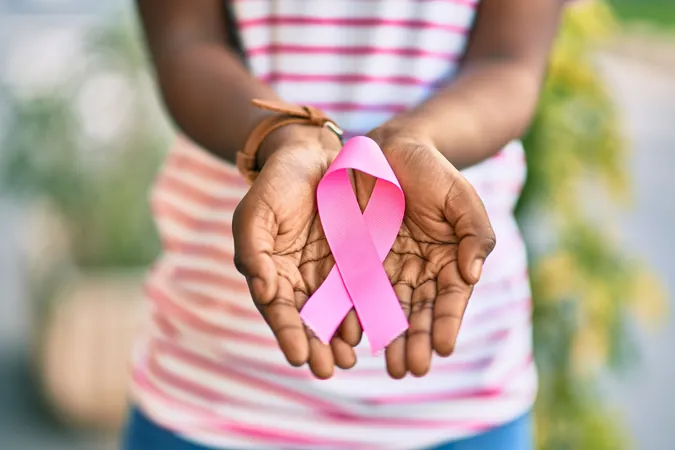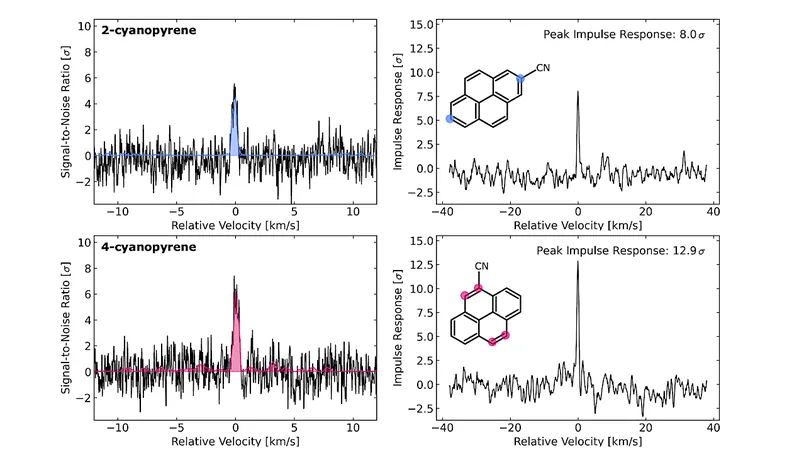
Shocking Disparities: Black Women Face Significantly Higher Breast Cancer Mortality Rates Than White Women
2024-09-27
Author: Ming
Recent research has unveiled a distressing truth: Black women diagnosed with breast cancer have a staggering 40% higher likelihood of succumbing to the disease compared to their White counterparts. This critical finding, published in the renowned Journal of Clinical Oncology, has put the spotlight on racial disparities across various breast cancer subtypes, revealing that the risk of death ranges from 17% to a shocking 50%, dependent on the specific type of breast cancer.
Breast cancer stands as the most frequently diagnosed cancer among women in the United States and is the second leading cause of cancer-related mortality. While often treated as a singular disease, breast cancer actually encompasses a variety of subtypes — each with differing treatment paths, prognoses, and risk factors.
This new meta-analysis scrutinized data from studies conducted between January 1, 2000, and December 31, 2022. Researchers assessed the survival statistics of Black and White women with breast cancer based on hormone receptor (HR) and human epidermal growth factor receptor 2 (HER2) status. They compiled data from 18 studies that included a total of 228,885 breast cancer patients, with 34,262 being Black and 182,466 being White.
The results were alarming: Black women faced higher mortality rates across all subtypes of breast cancer. Specifically, the mortality risk was approximately 50% greater for HR+/HER2- tumors, 34% higher for HR+/HER2+ tumors, 20% higher for HR-/HER2+ tumors, and 17% for HR-/HER2- tumors. Furthermore, overall survival rates were notably poorer for Black women across all categories.
Erica Warner, ScD, MPH, a cancer epidemiologist at Massachusetts General Hospital, emphasized that there has been an anecdotal belief in the research community that survival differences were less pronounced in hormone-negative tumors. However, this new evidence indicates that the persistently unequal outcomes may arise from both biological differences in tumor characteristics and a significant underrepresentation of Black women in clinical trials.
This pattern of racial disparity is not isolated to breast cancer; it echoes across various cancer types. For instance, a study published in Cancer Medicine highlighted significant differences in treatment initiation and survival rates among non-Hispanic Black and non-Hispanic White patients diagnosed with multiple myeloma. Nearly 60% of White patients received treatment within the first year after their diagnosis compared to about 59.5% of Black patients, indicating a concerning trend in treatment delays.
Similarly, disparities were noted in younger populations. Research in JAMA Network Open found that Black adolescents and young adults were more likely to receive late-stage cancer diagnoses across multiple cancer types. The circumstances surrounding these disparities call for urgent and effective interventions to tackle the systemic issues leading to these inequalities.
Experts in the field argue that these alarming disparities are not an unavoidable reality but rather a complex interaction of social, economic, and health care access factors. To effect real change and improve survival rates for Black women battling breast cancer, a multifaceted approach is essential. This could include navigating the healthcare system, addressing social needs, and proactively connecting patients with necessary resources.
The researchers advocate for national-level interventions, like the Accountability for Cancer Care through Undoing Racism and Equity (ACCURE) initiative, to bridge the gap in survival and mortality rates between Black and White patients.
The stark reality highlighted by this study serves as a clarion call for action among healthcare providers, policymakers, and communities. It underscores the urgent need to confront these disparities resolutely and work towards equitable solutions in breast cancer care and beyond. Black women fighting breast cancer deserve better, and the time for change is now.






 Brasil (PT)
Brasil (PT)
 Canada (EN)
Canada (EN)
 Chile (ES)
Chile (ES)
 España (ES)
España (ES)
 France (FR)
France (FR)
 Hong Kong (EN)
Hong Kong (EN)
 Italia (IT)
Italia (IT)
 日本 (JA)
日本 (JA)
 Magyarország (HU)
Magyarország (HU)
 Norge (NO)
Norge (NO)
 Polska (PL)
Polska (PL)
 Schweiz (DE)
Schweiz (DE)
 Singapore (EN)
Singapore (EN)
 Sverige (SV)
Sverige (SV)
 Suomi (FI)
Suomi (FI)
 Türkiye (TR)
Türkiye (TR)